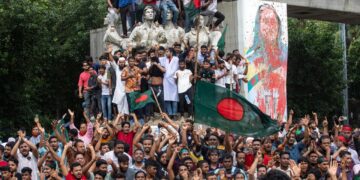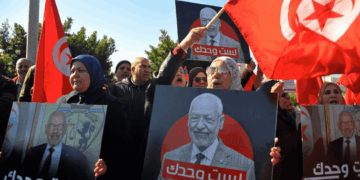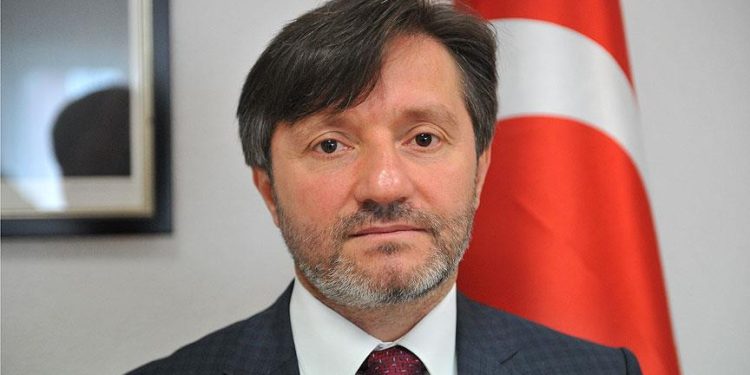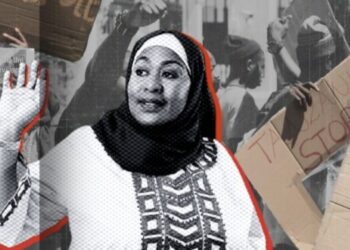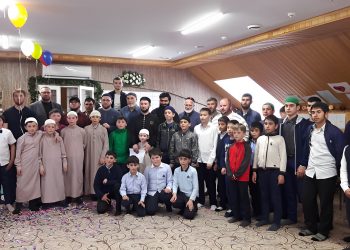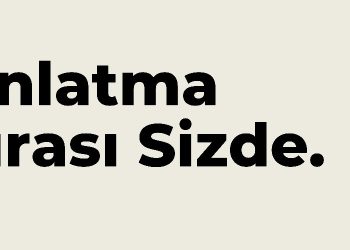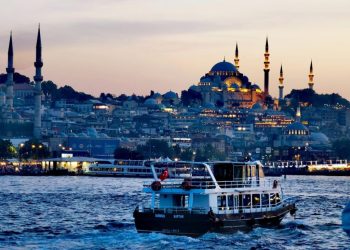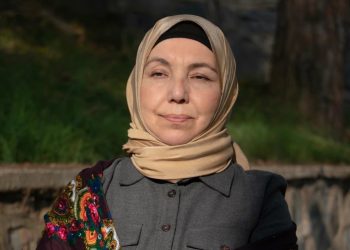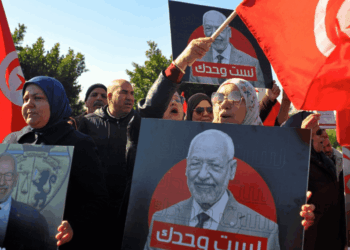Turkey stands as one of the central points for waves of migration due to its geopolitical position, and this trend is anticipated to continue in the coming years. In this context, how do you evaluate Turkey’s migration policies?
Yes, as you rightly pointed out, Türkiye constantly deals with human mobility due to its geopolitical position, and this continuity shouldn’t be confined solely to the modern era. Geography significantly influences migrations and other movements, as in the case of Türkiye, located at the center of civilizations throughout history. However, explaining migration movements only in relation to these features would, of course, not be sufficient. Political, economic, and cultural developments also play crucial roles in explaining human mobility, and a country’s political stability, economic growth, cultural richness, and scientific dynamism attract people. For instance, European countries emerged as migration destinations in the past century, but the same countries were sources of continuous migration in previous centuries. If you look only at the period between the sixteenth and twentieth centuries, Africa, Asia, Russia and the Americas were the destination regions of European migrants. For example, Catherine the Great’s incentive policies and religious and cultural pressures in the migrants’ home countries influenced migration to Russia during the 18th century. Germany, which took the lead in mass migration in this period, is one of the countries with the largest diaspora today. The Italian migrations to South and North America in the 19th century were driven by the desire to escape political and social crises and to access land and economic opportunities. From the second half of the 20th century onwards, the migration trend reversed. Europe has become a preferred region for human mobility due to its limitation of wars and bigotry, political stability, and economic progress.
We have had similar experiences in our region, Türkiye, as well. Turkish communities settled in Anatolia for economic, political, and religious reasons, building a civilization there. Over time, it witnessed more human mobility and even encouraged migration. If we only look at Türkiye’s recent migration movements, we’ll again observe similar experiences. The 1960s marked the onset of massive out-migration, when the country faced economic challenges and three-quarters of the active labor force was openly and secretly unemployed. During that time, public finance structures were reliant on external aid, and investment and employment-generating resources had not yet been created. Hence, both skilled and unskilled out-migrations remained part of Türkiye’s political and economic agenda for a long time.
Before the 2000s, migrations were mainly limited to humanitarian and natural crises, yet became more diverse during this period. People from different backgrounds, including intellectuals, scientists, politicians, investors, and entrepreneurs, preferred Turkey. The number of international students, which was 5000 or 10000 almost 40 ago, exceeded 300,000. Political stability and economic development significantly improved Türkiye’s global perception and position in our region. Socio-cultural dynamism and advancements in science and technology also rapidly increased. However, due to crises in neighboring countries, the migration of refugees has also been quite important for Türkiye. It was also a period of increased internationalization of Turkish society, especially in tourism, education, and trade. Sometimes, only these economic opportunities attract migrants. However, the migrations to the mentioned countries are largely seen as seasonal labor movements. It’s noteworthy that the countries under this category are mostly rentier economies with closed and distant social classes. We can categorize Gulf countries in this regard. These countries offer significant economic opportunities to attract the skilled migration they need.
In summary, geopolitical position is a significant factor in human mobility. However, it is not enough on its own. A country’s geopolitical position may be associated with transit migration or refugee migration due to crises. Attracting migrants can only be achieved through positive developments. In this context, migration to Türkiye in recent years is linked to the political and economic improvements in the country in the 2000s. It would be wrong to analyze migration movements in Turkey solely through refugee migration due to the crisis in Syria. Türkiye has been experiencing similar refugee migrations for the past 300 years. Whether from the Balkans, the Caucasus, or the Middle East, these mass migrations are closely related to Turkey’s historical and cultural background, as well as its social ties.
A country’s geopolitical position may be associated with transit migration or refugee migration due to crises. Attracting migrants can only be achieved through positive developments.
Do these statements indicate that you consider migration movements to be positive developments?
Actually, yes. But, of course, we need to set compulsory migration aside here. When people are faced with life-threatening situations, they immediately seek refuge in the nearest country, and the crucial factor here is to escape threats as soon as possible. We can mention many examples, like the Rohingyas seeking refuge in Bangladesh or the Sudanese fleeing to Egypt and neighboring countries. Every country that seeks development or aims to sustain its development must have comprehensive migration management. Today, you can see that more than half of the member countries of the United Nations have migration management. There’s increasing competition among countries to attract the required human resources. When you examine the details of migration management, you’ll inevitably encounter differences in motivations among target groups and processes. Any country that can avoid populist approaches or manage such pressures invests in migration management. The competition among Western countries to attract Ukrainian migrants by mobilizing all possible resources immediately after the war in Ukraine cannot be simply interpreted as solidarity with Ukrainians due to socio-cultural proximity. They have embraced this opportunity wholeheartedly because they encounter a migrant profile that won’t pose difficulties in explaining to their societies to sustain their development and overcome demographic shrinkage.
Every country that seeks development or aims to sustain its development must have comprehensive migration management.
The main point here is to have effective migration management. Preventing irregular migration and minimizing the risks of migration require proactive migration management. Controlling irregular migration is one of the fundamental aspects of migration management. Building walls or closing borders cannot be considered migration management.
Could you elaborate on migration management? What should we understand by migration management?
Migration management involves a wide range of responsibilities, including developing migration policies, determining migration strategies, controlling and managing irregular and mass migration movements, monitoring migrant flows, and effectively planning socio-economic and legal integration and social cohesion measures. Migration management should not be limited to visa issuance and deportation procedures or focused solely on preventing irregular migration, as such approaches not only fail to achieve success but also impose political, diplomatic, and economic costs on the country. Migration management requires a comprehensive approach.
The first step in migration management naturally lies in having a migration policy. Migration policy is a critical component of migration management and should be comprehensive, dynamic, and participatory for successful migration management. The development and regular revision of migration policy should be based on data and information. So, investing in the development of detailed and reliable data is essential. The efficiency of public administration depends on having a proper and transparent data system. Data that will contribute to migration policy, such as demographic statistics like birth rates, aging, and labor needs, data on the economic sector, and statistics on regular and irregular human mobility in Türkiye and neighboring countries, are crucial for determining both the need for migration and the roadmap for managing uncontrolled migration. Today, the birth rate in Türkiye has fallen to 1.5%, which is alarming for Türkiye as the average rate should be 2.1%. Participatory processes that involve political, social, and economic sectors bring ownership to migration management. Since migration is about human beings, it cannot be managed with static policies and requires periodic revisions of policies.
Since migration is about human beings, it cannot be managed with static policies and requires periodic revisions of policies.
The most critical stage of migration management is the process after the migrants cross the borders of a country. Managing this process with a focus on human and social benefits must be regarded as essential for achieving social cohesion while maximizing the benefits of migration and minimizing its risks. In this regard, providing access to the labor market, establishing infrastructure for migrants to utilize their skills and professions, and providing opportunities will benefit migrants and ensure their social integration. When we look at the issue from this perspective, it is necessary to make legal regulations based on residence in the exercise of the profession and inclusion in the workforce. The failure of Türkiye’s policy to promote skilled migration, as emphasized in its development plans, government programs, and strategies, is related to the closed nature of the job market and workforce. In countries with successful migration management, the basis for inclusion in the workforce is residence rather than citizenship. Indeed, in some countries, paying taxes comes before the legality of residence. While the turquoise card has been introduced in Türkiye to attract skilled individuals to the country, its success depends on suitable employment opportunities for them. Even though the laws and regulations for the turquoise card program were made almost ten years ago, it is as if it does not exist because of the lack of promotion. Only a few people have benefited from this program through administrative decisions so far. For the evaluation process to begin, the application for the program needs to be opened. However, due to the problems in the process, an accomplished academician who immigrated to Türkiye cannot become a university faculty member or chairperson of a department. This means that even a qualified migrant who has previously served as a department chair or dean at Harvard, for example, and has obtained residency in Türkiye, can only work with a one-year contract at universities in Türkiye. According to the YÖK (Council of Higher Education), the number of immigrant academics should not exceed 2% of the total teaching staff. However, over one-third of the University of Oxford’s professors are foreign nationals, and many leading universities have similar ratios. The same situation applies to many other professions, where problems arise due to issues related to professional laws when obtaining work permits. In this regard, the “restricted work permit” in labor laws is also problematic. Instead, there should be an “unrestricted work permit.” Restricted work permits are commonly encouraged on a sectoral and regional basis worldwide but are not typically applied as a universal rule.
Another essential element of success in migration management is education policies, requiring a bilateral effort. These policies should not only focus on helping the new population adapt to the country but also on promoting a paradigm that enhances their understanding and acceptance of the host community’s culture. The education system should aim to produce individuals who understand their own culture and the world and foster cultural diversity within the school environment. It should also have an inclusive curriculum that represents different social groups in society and be supported by teachers who have internalized this understanding and received appropriate training so that migration management ensures diversity. Considering that migrations have significantly influenced Turkish society, the curriculum should include places like Komotini, Kardzhali, Skopje, Novi Pazar, Aqmescit, Makhachkala, Khiva, Bukhara, Samarkand, Mosul, Kirkuk, Erbil, Damascus, Aleppo, and other regions with their literature, history, and culture so that our children and society can recognize these regions, their cultures, and people. Furthermore, individuals from these regions, whether they have arrived in Anatolia because of territorial losses, forced migrations, or voluntary resettlement, should see themselves as part of this society, sharing common values. A society that is unaware of its history and culture becomes alienated and hostile towards each other. Whether forced or voluntary, people who migrated to Türkiye predominantly come from regions with which we share common historical and cultural ties.
We all encounter different perceptions regarding the Turkish diaspora, who have settled abroad but come to their homeland for vacation in the summer. We must acknowledge the issues with the language used in the media, the behavior on the streets, and the attitudes of shopkeepers, which stem from the insufficient representation of those living in the diaspora, who are our relatives and acquaintances, in textbooks and curricula. Our lack of recognition of our diaspora in all its aspects and awareness of their contributions to this country nurture negative behaviors. When determining strategies and work programs in all areas of responsibility of all public institutions, action should be taken considering all the population within the borders of the country, adopting a residency-based approach. The global trend indicates a shift in public services, moving from a focus on citizenship to residency.
Migration management cannot be effectively implemented without considering perspectives beyond security and law enforcement. Yes, it is a part of them, yet the societal dimension of migration management also relies on the education system and the workforce. Revising these areas with visionary, comprehensive, and dynamic policies is essential for successful migration management.
Can we say that racism and xenophobia stem from Islamophobia?
Preventing the increase in discrimination, hatred, racism, and Islamophobic behavior is also directly related to education policy. Unfortunately, today in Türkiye, we are witnessing Islamophobia-driven, hate-motivated behaviors from both political circles and some segments of society. Anti-Islamic and anti-Muslim sentiments are referred to as Islamophobia in the media and public discourse. According to the definition provided by the Organization for Security and Co-operation in Europe (OSCE), it is evident that the source of hatred in some segments of Türkiye stems from Islamophobia. Generally, when looking at the profile targeted by xenophobia, we observe that this hatred is directed towards Muslim immigrants coming from regions with which we share common historical and cultural ties.
These approaches threaten social cohesion and development as well as Türkiye’s relations with its neighboring regions in terms of politics, economics, and security. They have a negative impact on Turkish investments and projects, limit service exports, and result in political costs. The largest customer base for health tourism consists of customers from Muslim-majority regions, including the Middle East, Africa, and Central Asia. There is a noticeable shift in preferences towards exploring new destinations, while overseas business visas for Türkiye have witnessed similar decreases. From this perspective, immigration, if well managed, would have been positive for Turkey. However, prevailing negative approaches and discourses harm Türkiye’s interests.
Of course, we cannot talk about humanitarian values with a profit-oriented approach. We express these to highlight the fact that when we move away from a humane and human-centered approach, it will not only affect our values and humanity but also lead to economic, political, and strategic costs.
Many argue that the current situation in Türkiye is caused by irregular and mass migration. Do you think stopping irregular migration and reversing the flow of mass migration will change the situation?
Migration management is a comprehensive concept that involves handling irregular migration, refugee flows, and foreign white-collar workers using the same approach. Türkiye regularly deals with irregular migration and refugee flows due to geopolitical reasons, as well as since these migrants often come from societies with historical and cultural ties to Türkiye.
The essence of managing irregular migration is a dynamic and flexible migration management strategy. The restrictive and closed nature of current labor laws actually contributes to today’s irregular migration. It is well known that there is a high demand for human resources in the service sector, agriculture, livestock, information technology, and technical fields. If the irregular migrants in the service and agriculture sectors were sent back today, these sectors would collapse, and this is a well-known fact. As we mentioned above, what needs to be done is to develop migration policies based on regularly produced data that identifies the needed areas. If immigration intake, visa/residence arrangements, and labor laws are updated to address the gaps in specific sectors, the irregular migration stock will quickly diminish. No one will risk their life and endure inhumane treatment trying to enter the country irregularly, so such attempts will be minimized. More importantly, informal employment will decrease, and taxes will be paid, creating a situation where all parties benefit.
The essence of managing irregular migration is a dynamic and flexible migration management strategy. The restrictive and closed nature of current labor laws actually contributes to today’s irregular migration.
Another important policy step is to combat irregular migration from the source. It is necessary to develop policies to improve the conditions in the source regions that force people to migrate, based on data and research, and to ensure the implementation of these policies through national and international initiatives. This requires a wide range of programs and projects, such as foreign aid and international development projects, civil society efforts, and security sector collaborations. Policies should focus on improving public services, border management, and local development programs in the origin countries.
To summarize, Türkiye has been implementing migration policies for the past three hundred years. The migrations that began with territorial losses during the Ottoman period are not considered international migration. However, they were managed as migration in essence. It is seen that public authorities planned and executed all processes, from settlement planning to adapting to economic life. Türkiye has continued to attract migrants since the early years of the Republic. During this period, the aim was to enrich the country with an insufficient population structure. Migrations from the Balkans and other former Ottoman territories were prioritized. The negative policies of Balkan countries, which tried to reduce their Muslim populations in their nation-state efforts, also played an important role. Migration was managed through bilateral agreements with some countries like Yugoslavia. Türkiye has long maintained its importance as a significant transit migration route.
However, until the establishment of the Presidency of Migration Management with the law enacted in 2013, migration was managed by the Section for Foreigners and the Ministry of Environment, Urbanization and Climate Change and occasionally through temporary provisions. The 2013 Law on Foreigners and International Protection can be considered as the first important step in this regard. The Presidency established during that time had to manage the crisis and complete its establishment processes simultaneously. In recent years, increasing hate speech and manipulative and provocative actions have disrupted the development of healthy, information- and data-based migration management.
As mentioned above, migration management must be comprehensive. From the admission process to all stages, policies and practices should align with fundamental management principles. All units of public administration should similarly take the necessary steps as part of migration management. The aim should be to interact with and include civil society and the private sector in the processes. Moreover, there is a need for academia and think tanks to contribute to research and policy development. However, in recent years, universities have not sufficiently focused on the issue although it is a crucial issue to be addressed.








